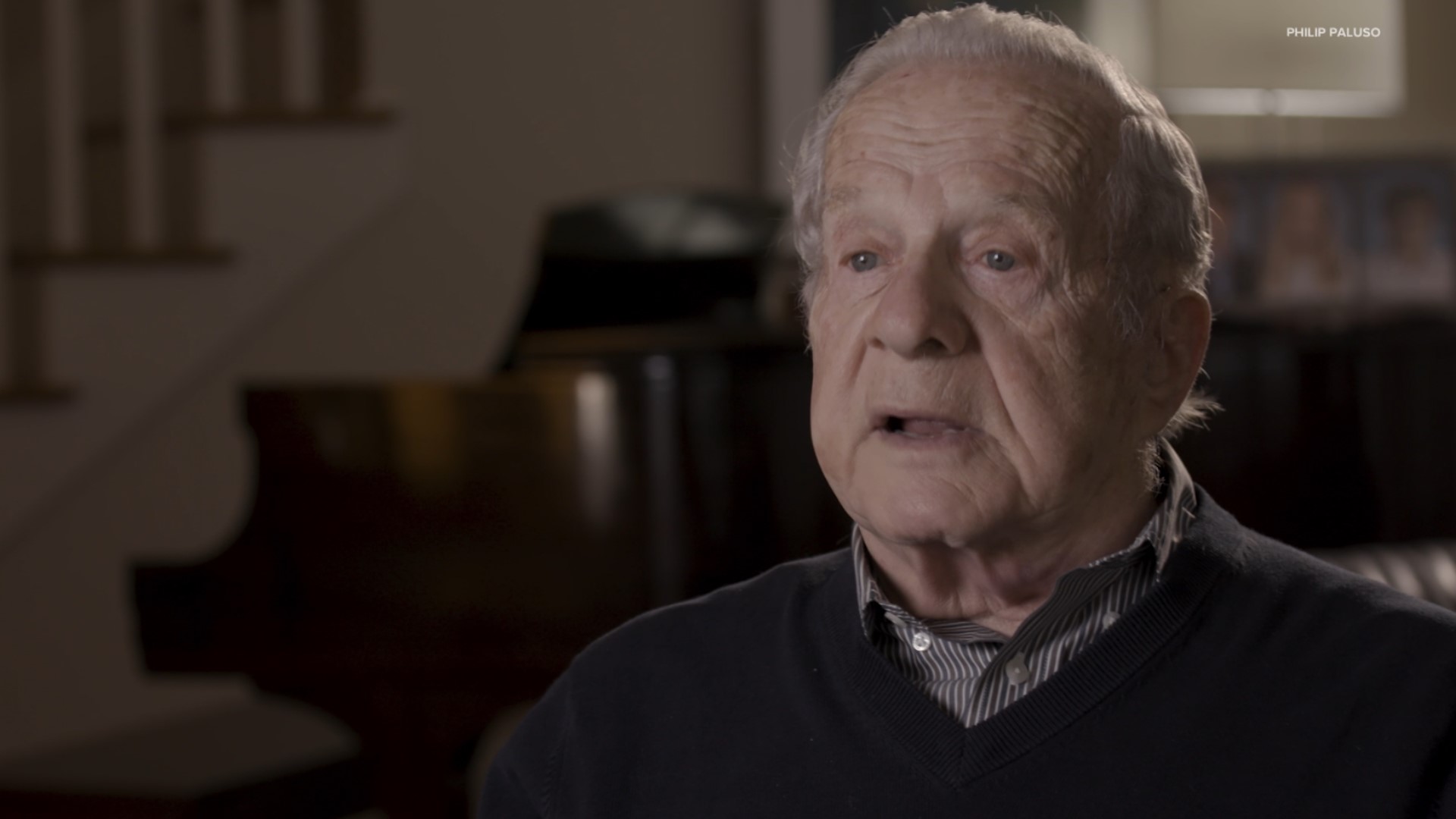INDIANAPOLIS — A new documentary is being made right now about Hoosier Holocaust survivor Frank Grunwald.
Grunwald spent his adult life in Indianapolis, but as a child, he suffered the devastating consequences of hatred at the hands of the Nazis.
His story is so powerful, it is now being made into a feature-length documentary produced by the Indianapolis Jewish Community Relations Council.
The film is called "Sweet Lorraine in Auschwitz," and is part of a mission to educate others about the Holocaust and help counter antisemitism.
The documentary uses music to connect with that message, just as music helped Grunwald survive all those decades ago.
There's something about music that has the ability to move us, transport us, speak to our souls.
For Grunwald, American jazz — especially the song "Sweet Lorraine" — brought such comfort that in the darkest time in human history, music was the light that helped save his life. It brought him hope to survive the Holocaust.
"Jazz music captivated him," said Philip Paluso, director and cinematographer of "Sweet Lorraine in Auschwitz." "And that song was top of his hit parade. He just absolutely adored that song."


"Jazz really always lifted him up," said Amber Maze, "Sweet Lorraine in Auschwitz" producer and JCRC senior associate. "It soothed him."
"As it turns out, his story is a story of survival that is almost unbelievable," Paluso said.
The film's title came at Grunwald's request because of a very specific connection to that song and the Holocaust.
"'Sweet Lorraine' was one of the songs that Frank and his brother, John, would hum and sing in Auschwitz. It's one that he continued to connect with after the war," Maze said. "In those moments when he and John were singing it, it was like they were back in their living room."
"When he was in concentration camps, the thought of that music took him to a place that was safe and made him feel better," Paluso said, "which to me is unbelievable that somebody could put themselves into a cocoon amidst all that horror."


Maze and Paluso are retracing Grundwald's footsteps and sharing his sobering journey to educate about the Holocaust. They plan to share the documentary in film festivals and schools as a message of both alarm and hope.
"Because there's something here that is pretty remarkable," Paluso said. "He was a remarkable man."
"It's about a boy who found himself surrounded by unimaginable horrors and used music as a driving force for survival," Maze said.
Frank was just 7 years old when the Nazis invaded Czechoslovakia. His family was ripped from their home and forced into a Jewish ghetto. Then, they were sent on trains to concentration camps and separated.
Their names are still recorded in black and white in a Nazi log book of death and destruction.


Most of the people listed there never made it out.
"Franz Grunwald, which is Frank," Maze pointed out in the footage. "There are so many names and so many stories. It made my heart hurt."
Grunwald survived four death marches in mid-winter and five different concentration camps.
At Auschwitz, he saw trains come in, many loaded with kids just like him.
The next day, they were gone.
"He thought he was going to die," Maze said.


"Well, after about two or three weeks in Auschwitz, I realized that Auschwitz was an extermination camp. I saw the smoke coming out of the crematoria that was the closest to the Czech family camp," Grunwald said in an interview for the documentary, "and there was heavy smoke filled with human ash coming off that chimney 24 hours a day."
"When you think about a child going through this, growing up really fast, you just, you know you just say, 'I don't know how he did that,'" Paluso said.
For the documentary, Maze and Paluso traveled to eastern Europe, capturing on camera the places where Frank endured evil, where millions of people lost their lives, including Frank's mother and his brother, John.
"There's nothing like standing in those locations," Maze said. "You can feel people."


"You can feel the ghosts," Paluso said. "When you aim your camera lens up at the opening where the Zyklon B was dumped, and you realize what was happening on the other end of that ... One of the reasons we have to carry on is we have to make sure that nobody forgets what happened."
It's an especially critical mission right now, with antisemitism on the rise and Holocaust survivors declining in number.
Grunwald passed away in August.
"The onus to pass on the stories falls to us now," Maze said. "This is now history. It's no longer a living event. And so to ensure these stories go on, that falls on us, so the lessons that humanity should have learned after the Holocaust continue."
Now this story will live on: how people took risks to help a child survive, how music helped him, too.
"Sweet Lorraine in Auschwitz" will weave together struggle and song, with an indomitable human spirit.
The film's creators hope Frank's survival story inspires people to fight against identity-based hatred. They plan to finish "Sweet Lorraine in Auschwitz" by the end of spring and enter it in film festivals this fall.
You can learn more here.

